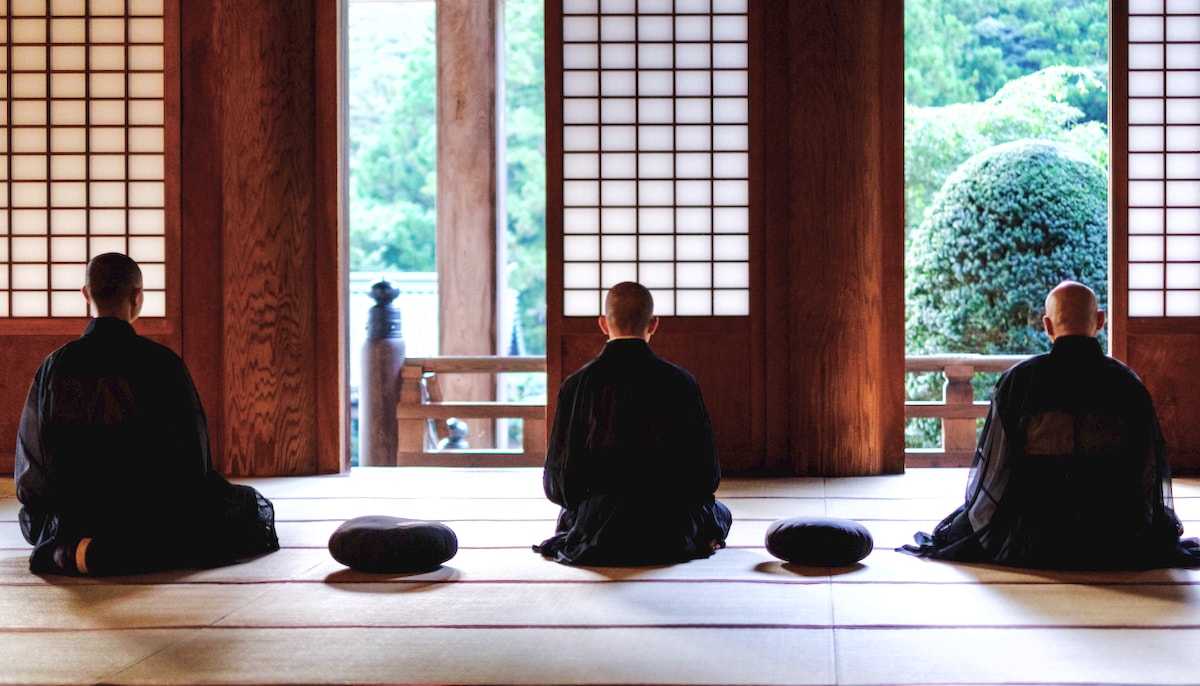We are human beings walking a path of liberation, and the value of community is linked to our fundamental humanity. As Suzuki Roshi said, “Buddhanature is just another name for our human nature.” As human beings, we are strongly affected by those around us: we share in their joys and sorrows, and we look at what is happening in our immediate environment and feel discouraged or inspired. Nowadays, evolutionary scientists tell us we are “hardwired” as social beings; it is human nature to be influenced by our association with family, friends, colleagues, neighbors, the communities we work and live in. The English word “influenza” comes from the same root, and the view here is that awakening is positively contagious: we catch each other’s wisdom and compassion, because wakeful examples resonate so strongly with our own innate nature.
In the various Buddhist traditions, “sangha” sometimes means, primarily, the community of nuns and monks walking the path, but more generally it includes all those committed to waking up. So we could extend this view of practicing in community: let us receive inspiration from the examples of basic goodness we encounter around us, from the people who are manifesting bravery and compassion in everyday life. Whether they are religiously affiliated or not, surely these are spiritual warriors, and our own commitment to cultivating fearlessness is strengthened by their shining examples.
When we appreciate the kindness of a co-worker or the thoughtfulness of a neighbor, we enter a virtuous gathering—whether we are in a zendo, temple, or meditation center at that moment or not. So, finding the noble community of the wakeful is in part a matter of perception. In this wider sense, traditional teachings on the supreme value of Noble Sangha are part of a “lion’s roar” proclaiming the fundamental goodness of all beings, encouraging our appreciation of the sanity and warmth in the diverse communities around us.
Yet what about the neurotic confusion, the selfishness, and greed we also see in our social environments? These too act as a mirror for us, reminding us of the strength of our own habitual patterns of delusion. There is something uncomfortably familiar in seeing others’ acts of stupidity and aggression. Inner mindfulness is sparked to take note of our own thoughts, speech, and actions—and their harmful or helpful effects. As Jamgon Kongtrul the Great wrote: “Seeing bad qualities in others is like looking in the mirror at the dirt on one’s own face.” We are all engaged in a learning process together, and the feedback we receive from others (even if not always egolessly pure) can be very valuable in guiding our journey.
So the path here is to value our existing connections, whether it’s as part of an environmental action group or hanging out with others after a strenuous yoga class. Our individual spiritual practice bears fruit in these collective human interactions.
The great Tibetan meditation master Patrul Rinpoche often greeted his students this way: “Has your heart been kind?” How we are with others is a revealing mirror. We should be somewhat suspicious of any developing sense of “personal awakening” that does not show up as increased compassion and care for others’ well-being. Wisdom shows its smiling face in the spontaneous joy of being with others.
Appreciating spiritual companionship means associating with any wakeful groups dedicated to compassionate activity. If slander and sarcasm are the daily bread of our communal meals, the determination to awaken gradually weakens and grows dim. Basic confidence and life-force energy decline. Our lives are precious. Whom are we going to spend them with?


